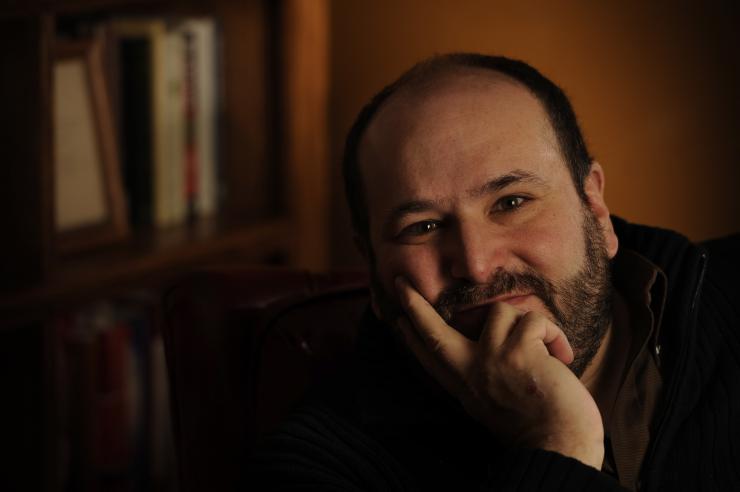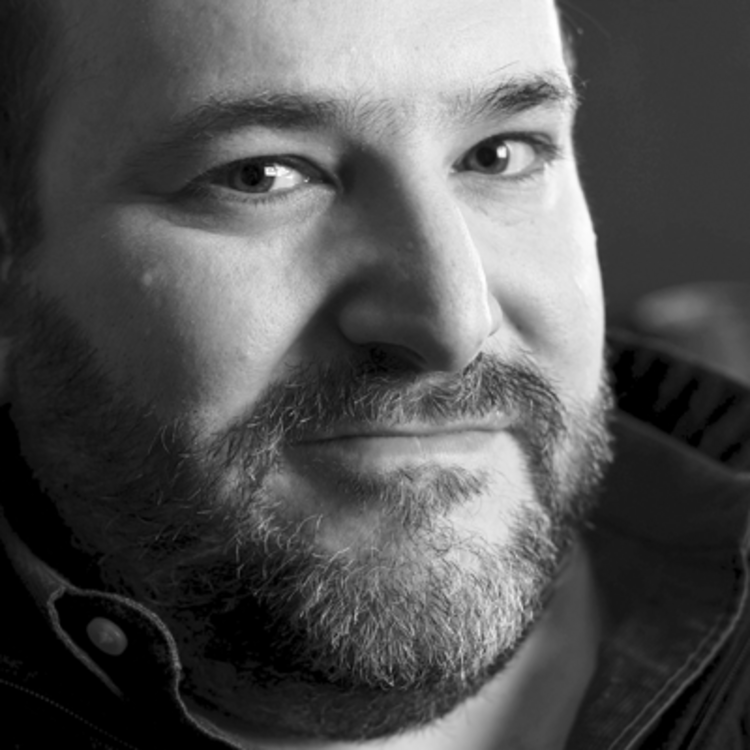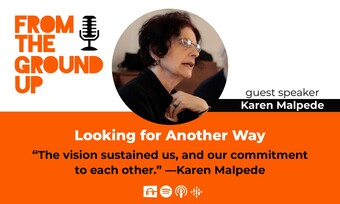Losing My Insomnia
My typical night of insomnia begins, perhaps paradoxically, in sleep. I lie down at what feels like an appropriate time and drift off easily, but for some reason that no manner of science or self-investigation has managed to unearth, I fail to make the hoped-for graceful turn from light slumber into deep dreaming. Fifteen minutes or so after getting into bed I am jarringly, and seemingly without provocation, awake. Wide awake.
From experience—thirty years of it—I know immediately that I won’t be sleeping again for several hours, but I still go through the ritual of trying, fruitlessly, to return to Morpheus’ arms, as my classically-educated grandfather used to refer to sleep. I reorient myself in bed, flip my pillow to the cold side, adjust the covers, and close my eyes… but I am quickly tossing and turning, my mind racing and irrevocably alert.
In other words, it’s time to write. I trundle downstairs to the study as quietly as I can, settle into my writing chair, and open up my laptop. If I’m lucky—or is that unlucky?—I have two or three hours of writing time ahead of me, at which point sheer exhaustion usually overcomes me and I head back to bed.
In time I figured out that the surest way for me to help myself sleep was to start unfolding a narrative in my mind
Let me tell you, though: those are some seriously productive hours. While the rest of the house—the entire world, really, it seems to me—is quiet and still and dark, I sit by myself in the small circle of light cast by the antique lamp in my study, with nothing but my own thoughts for company, and write without hesitation, self-consciousness, or distraction. I am utterly and purely creative. I feel alive and, bizarrely, free.
…
It wasn’t always this way. When my insomnia first began to develop, in my teens, it never even occurred to me that getting out of bed was an option. Instead, I spent long, miserable, agonizing stretches of what felt like utterly valueless time prone, awake, and locked in a psychologically, neurologically, and biologically impossible battle of wills with my own mind.
I would decide to sleep; my conscious mind would determine it was time to rest. But my subconscious mind would then tell me, as if to humiliate me, that I wasn’t actually allowed to will into being what amounts to a state of surrender and submission. (There’s a reason we call it “falling” asleep and not “jumping” asleep.) The harder I worked to make sleep happen, in other words, the less likely I was to succeed.
If you happen to share my struggles with insomnia, you are possibly now nodding your head vigorously or shouting “Yes, that’s exactly it!” You may also guess at the means by which I’ve struggled against it: visits to sleep clinics, prescription sleep medicines, self-medicating with food and (at one time long ago in my life) alcohol. I wonder, though, whether you will also find familiar the means by which I began, slowly, to extricate myself: telling myself stories.
I can’t point to the precise moment—sometime during my late teens, I think—but in time I figured out that the surest way for me to help myself sleep was to start unfolding a narrative in my mind. I could tell myself a new tale every night, or repeat the same story with small variations several nights in a row, or continue one story from night to night, expanding it every evening. No matter what the story was about, without fail (well, almost) it would eventually ease me to sleep. Neuroscientists say you can actually make yourself feel happy by smiling; I learned, in a similar way, to make myself feel drowsy by dreaming.
Here’s where it got difficult: eventually, I started to look forward to each night’s mental writing session. Instead of using my new technique to trick myself into falling asleep, I actually started to fight sleep in order to keep the night’s story going as long as I could. Talk about unintended side effects: the cure became worse than the disease. So I gave up completely and got out of bed… and never stopped telling stories in the dark.
…
The Mayo Clinic lists the primary causes of insomnia as stress, anxiety, depression, side effects from medications, stimulants like caffeine and nicotine, a variety of unrelated medical conditions, changes to one’s daily routine, and eating too much late at night. What it doesn’t include, to my dissatisfaction, is either existential angst or dark nights of the soul. It’s so much more beautiful to me to think of sleeplessness in those terms. They lend insomnia a sense of significance and purpose.
Of course, the word insomnia itself is fraught with meaning. Somnus was the Roman god of sleep, so to be “in-” (without) Somnus is to be without god, in some poetic sense. This may be why we associate being awake in the dead of night with long, heartfelt prayers full of penetrating and difficult questions: an attempt to overcome some spiritual estrangement.
Me, I’m a happy non-believer (and have been since years before I developed insomnia), so when the world is dark and quiet and my mind is unsettled, I don’t talk to imaginary characters: I talk for them instead.
And that talk means everything to me, as you might imagine… which explains why, no matter what my insomnia has done to me over the years—soul-wearying exhaustion, weight gain, impatience, irritability, and a crazy sleep-wake cycle that has somewhat severely tested several relationships—I remain grateful for it. For all of its agonies, sleeplessness made me a playwright.
…
A quick Google search confirms what I instinctively know to be true: I’m far from the only writer in history to wrestle with insomnia. The list I found includes one-name luminaries like Chekhov and Fitzgerald and modern masters like Haruki Murakami, E. Annie Proulx, and Siri Hustvedt. There are any number of plays—too many to count—with the word insomnia in their titles, and the same seems to be true for other genres as well. I am clearly not alone.
I wonder, however, whether I’m the only writer who has faced my current struggle: the loss of my insomnia. As I write these words, it has been fourteen months since my beautiful son was born, and (naturally) sleep has been at a premium—so much so that I now lie down in bed at night in the state of sheer exhaustion I used to arrive at only after two or three wee-small hours of writing. In other words, I can sleep again, better than I’ve been able to sleep in more than three decades. This is a development that might have made me happy without reservation many years ago, but now it just means my precious middle-of-the-night writing time is utterly gone.
It’s a bit hard to describe how I feel having lost it. I think melancholy is the closest I can get. Yes, being awake when I should have been sleeping left me tired, but it also left me content. I used to believe that while others were resting, I was doing my small part to keep a fire burning in the world’s mind. I felt useful; toiling away in secret made me feel—I’m almost embarrassed to admit this—like a good person. I’m reminded of the Grimm brothers fairy tale The Elves and the Shoemaker; while the world slept, I did some of its work. And now it’s not like that anymore.
…
It’s not as if I haven’t always written at other times, too. At various periods in my life, I’ve been an early morning (before 8 a.m.) writer, an afternoon writer, and an evening writer. Even before my son was born, when I was still an uncured insomniac, I’d become an all-morning writer, working fairly steadily from 8 a.m. until about noon, though I typically used my sleepless sprints to generate new material and my mornings to edit it.
Now all I have are the mornings, and it’s so utterly strange telling stories while the sun is shining. It feels as if I’m somehow cut off from a source of something. I used to reach down into a deep, dark well and fish up characters, emotions, words, anguish, star light, wishes: whatever I needed. Now everything’s already exposed and well-lit. Writing feels like shopping for inspiration in a fluorescent-flooded grocery store. I have seriously considered taking a page from Chicago playwright David Ives, who writes in a darkened room with the doors closed and the shades closely drawn. I cannot, however, bring myself to go that far.

Has my writing begun to change in some way? Has it become sunnier and brighter? Is it somehow less mysterious and magical? Now that I make my plays while the rest of the world is going about its business, will my work be somehow less alienated from the ordinariness of humanity? Will hearing the garbage trucks and listening to my son laugh in the other room and watching my neighbor trim the bamboo in her backyard make my work stronger in some way, or just different? And if it will become different, then in what ways will it change? I really don’t know what to expect.
My fervent hope is that in some way, this will become a good thing for me. That bringing my work out of the deep dark will in some way open it up to a richer engagement with the real, living world. Beyond that, I find myself wondering whether the same sort of move, metaphorically, might be useful for all of us. Are there ways in which we can all collectively bring our art out of the dark? Make it less mysterious and more accessible for people? To join the workaday world, even if only for a bit?
Maybe so, and maybe to great effect. We could certainly stand to find ways to connect ourselves to the people for whom we are making plays, given that they’ve been turning their shoulders to us in greater and greater numbers for decades now. But before we abandon the dark entirely, let’s not forget what it gives us, too: the strange inspiration of dreams, an outside perspective on the lived life of the world, and a way to connect with our pure, creative selves without distraction. All things, I am sure you’ll agree, that we cannot live without.














Comments
The article is just the start of the conversation—we want to know what you think about this subject, too! HowlRound is a space for knowledge-sharing, and we welcome spirited, thoughtful, and on-topic dialogue. Find our full comments policy here
I've been struggling with Insomnia for my whole life. In my twenties I'd use the middle of the night-time to write. For some reason I've not done that in my forties. I think when my "godlessness" strikes, I will crack the lap-top and write.
Gwydion,
You just described me! Only I was choreographing in the middle of the night... 2-4:30 a.m. were my most productive hours. I've been seeking the same quality time ever since. My insomnia comes and goes - but is mostly gone. Like you, it was the birth of a child that did it. Finding the discipline to reserve quiet hours for myself during the day was hard, but essential. I found it then... now, with my second child only 9 weeks old, I am searching again. I am not sure when I'll get back to 2.5 hours of exploratory time a day again. I know I'll find it... perhaps with pre-school?
Happily, my son likes to be strapped onto me in the Moby - I am getting to wiggle a bit. Still seeking...
k.k. :)